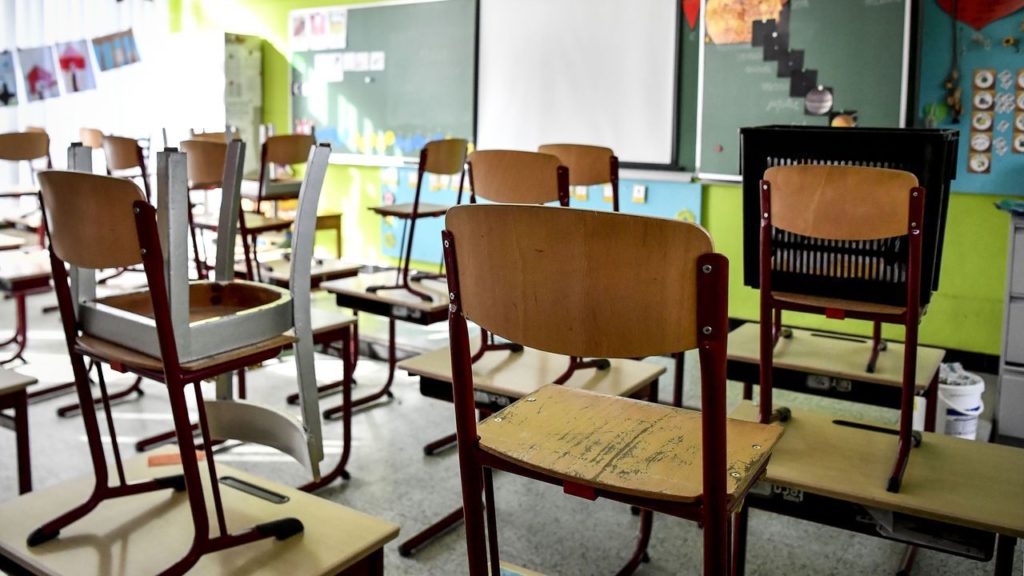If the number of coronavirus infections in Belgium continues to rise, schools will not be able to open fully in September, according to Niel Hens, biostatistician and member of the government's Group of Experts for the Exit Strategy (GEES).
The current coronavirus situation would see the country begin the school year with a code orange or red, Hens said on Radio 1 on Friday, referring to the plan that was worked out in June for the 2020-2021 school year, which uses four colour codes (green, yellow, orange and red) to indicate which measures would be necessary.
"The children are already behind in their learning due to the lockdown, it is very important that we give them the chance to go to school," said Hens. "There are still questions about secondary schools, because children can easily transmit the virus as early as the age of 12," he added.
The orange scenario would apply when the virus’ spread is accelerating. In that case, secondary school classes would be halved with each half-group attending school coming to class on a rotating basis week by week. Kindergartens and primary schools would continue to teach on-site to all pupils.
Everyone will get have a fixed seat in the classroom, breaks will take place with the classroom social bubble, and lunches will take place in the classroom.
Related News
- Lockdown: Belgium sends all students back to school from September
- Belgium breaks average of 200 new coronavirus infections per day
Code red would follow the same measures, but with stricter hygiene rules and with contacts between pupils and teachers limited as much as possible.
A full lockdown, like in March, is not necessary, according to Hens. "But if we cannot turn the tide now, we will start with code orange or red for education in September," he said, adding that this would place the country at a disadvantage right from the start.
"It is going to be difficult for teleworking parents. We have to act now to avoid that," Hens said.
Research that Hens conducted with the University of Antwerp about people's behaviour in coronavirus times shows that younger people between 18 and 30 are particularly lax with the measures. "[They] have more and more contact with each other, and with older age groups. We are very concerned about these intergenerational contacts," he added.
"However, the study also clearly indicates that we can turn the tide by adjusting our contact behaviour, right now," he said, for example by reducing the number of people we are in close contact with, and always maintaining the same contacts per week.
Maïthé Chini
The Brussels Times

